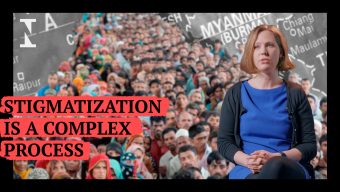This month, the winners of the 2024 Nobel Prize in Economics, formally known as the Sveriges Riksbank Prize in Economic Sciences in Memory of Alfred Nobel, were announced. Interestingly enough, Economics only became a Prize category in 1968 (and was first awarded in 1969 to Ragnar Frisch and Jan Tinbergen for their work in econometrics), with the original categories being Physics, Chemistry, Medicine, Literature, and Peace. At the time – in the 1960s – economics was growing in influence and increasingly viewed as a scientific discipline that influenced society and addressed many global issues. Of course, that has only become more so. This year’s Sveriges Riksbank Prize has gone to the economists Daron Acemoglu, Simon Johnson, and James A. Robinson, for their research on how institutions influence the prosperity of nations.
Their work has been instrumental in understanding how political, economic, and social institutions impact economic growth and the distribution of wealth. They have also provided valuable insights into the ability of countries to cope with crises and how they move towards inclusive and sustainable development. One of their seminal contributions is the analysis of how institutions influence the distribution of power and inequality. They argue that extractive institutions not only hinder growth, but also perpetuate inequality by allowing an elite to maintain control over resources and policy decisions.
Daron Acemoglu and Simon Johnson are both professors at the Massachusetts Institute of Technology (MIT). Acemoglu is recognized as one of the world’s most influential economists, with a career that has revolved around studying the impact of institutions on economic development and the distribution of power. Johnson has specialized in the relationship between financial crises and institutional stability. James A. Robinson is a professor at the University of Chicago and has worked closely with Acemoglu on research into the causes underlying the success or failure of nations.
In fact, Acemoglu and Robinson authored Why Nations Fail – The Origins of Power, Prosperity, and Poverty, a book that has become a benchmark in the field of economic development. The publication explores the reasons why some nations prosper while others stagnate, with a focus on the pivotal role played by institutions.
The core concept in Acemoglu, Johnson, and Robinson’s research is the dichotomy between inclusive and extractive institutions. Inclusive institutions are those that encourage widespread participation in the economy, promoting competition, innovation, equal opportunities, and respect for private property. These institutions create an environment in which the majority of the population can leverage opportunities to improve their well-being, which drives sustained economic growth.
Conversely, extractive institutions concentrate power and resources in the hands of a small elite, who undermine changes that threaten their interests. These institutions limit access to education, innovation, and entrepreneurship, hindering economic development and perpetuating poverty and inequality. The authors argue that a nation’s failure in economic terms is mainly due to the existence of extractive institutions that prevent the majority of the population from participating in the economy, thus eroding any potential for growth and prosperity.
One of the main contributions of Acemoglu, Johnson, and Robinson is their analysis of how institutions form and develop. They underscore that institutions are not static, but morph and adjust over time. These transformations are driven by political, social, and economic forces.
The work of these three economists examines how crises, wars, technological changes, and political revolutions can unlock opportunities to transform institutions. For example, historical events such as the Glorious Revolution in England in 1688 and the American Revolution in 1776 are cited as pivotal turning points that enabled inclusive institutions to be established, facilitating long-term economic growth and innovation.
In their book, Acemoglu and Robinson point out that economic institutions are intricately linked to political institutions. They argue that inclusive political institutions, such as democracy and the separation of powers, are instrumental in fostering the formation of economic institutions that encourage development. Inclusive institutions that benefit most of the population are more likely to emerge when political power is in the hands of a broad coalition of stakeholders. Conversely, when power is concentrated in the hands of an elite, extractive institutions are more likely to emerge benefiting only a select few.
Sustainable economic development depends on creating and sustaining inclusive institutions.
The book also discusses how the balance of power in society shapes the nature of institutions. Inclusive institutions are more likely to develop in societies where citizens have the power to demand change. However, in contexts where power is concentrated in the hands of an elite, institutions tend to protect the interests of the few, rather than promoting the general good.
Acemoglu, Johnson, and Robinson emphasize the fact that certain “critical junctures” in history, such as revolutions, wars and economic crises, can become opportunities for profound changes in institutions. These junctures enable societies to move from extractive to inclusive institutions, or vice versa, depending on how the benefits of change are shared out and who wields power at the time.
For example, the Glorious Revolution in England laid the foundations for the creation of inclusive institutions, favoring economic development and innovation. By contrast, in other countries, crises have consolidated extractive regimes that impede progress. Argentina’s 20th-century political instability led to authoritarian rule, with corruption and populism impeding development. Similarly, in Zimbabwe, Mugabe’s policies favored nepotism and caused economic decline, particularly in agriculture.
In the course of their research, Acemoglu, Johnson, and Robinson have drawn on a plethora of these historical examples to explain why some nations thrive and others fail. These examples include cases such as Latin America, where the legacy of extractive colonial institutions has had a lasting impact on economic development, and the United States, where the inclusive institutions built since its foundation have fostered growth and innovation.
Sustainable economic development depends on creating and sustaining inclusive institutions. This involves nurturing political participation, limiting the power of elites, and upholding the rule of law. They reject simplistic explanations that attribute the success or failure of nations solely to cultural, geographic, and natural resource factors, arguing that while these variables are important, it is the quality of institutions that shapes a country’s economic destiny.
The 2024 Nobel Prize in Economics serves as a reminder of the importance of institutions in economic and social development. Acemoglu, Johnson, and Robinson’s collective work shows that prosperity does not hinge solely on natural resources and geographic location, but on the rules and institutions that govern our societies. The key to inclusive, sustainable development lies in bolstering these institutions, ensuring that they are indeed inclusive and that they encourage universal participation in economic and political life.
This article originally ran in Spanish in Expansión.
© IE Insights.











